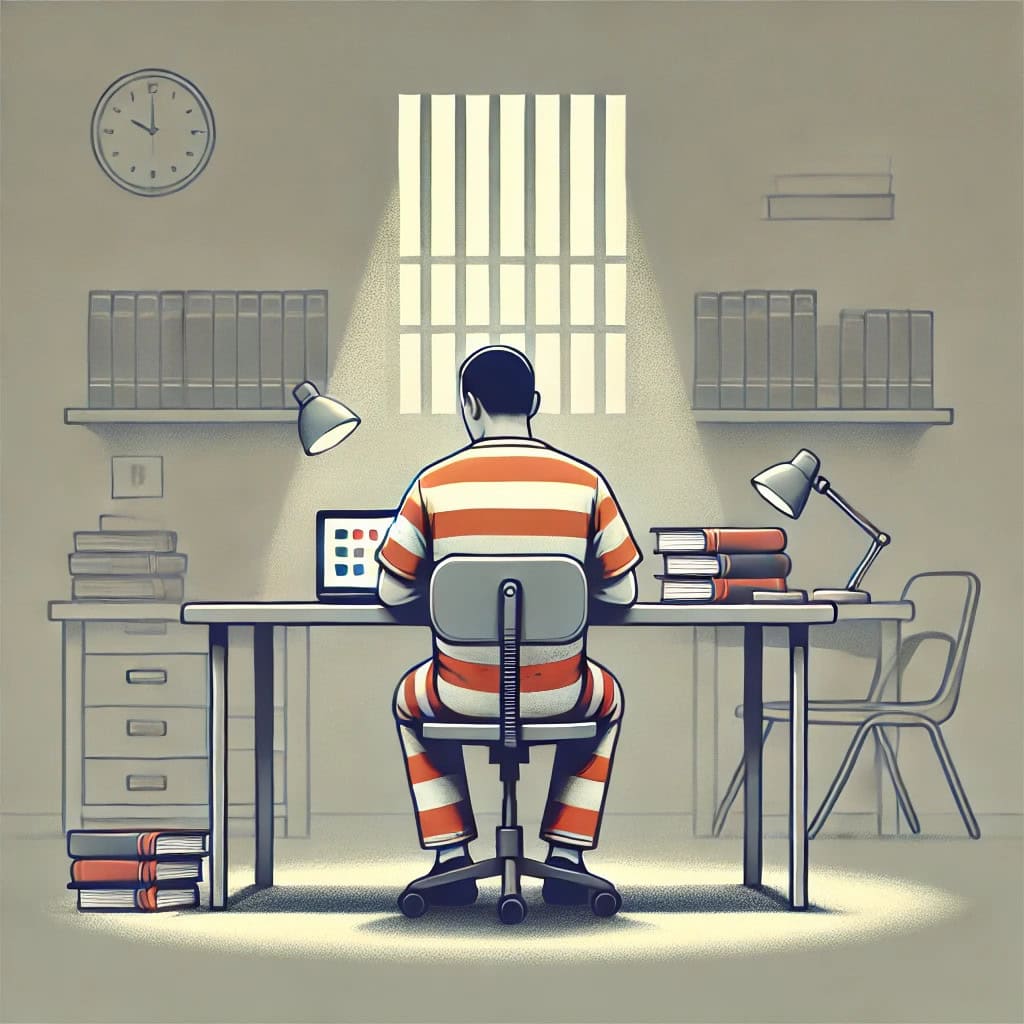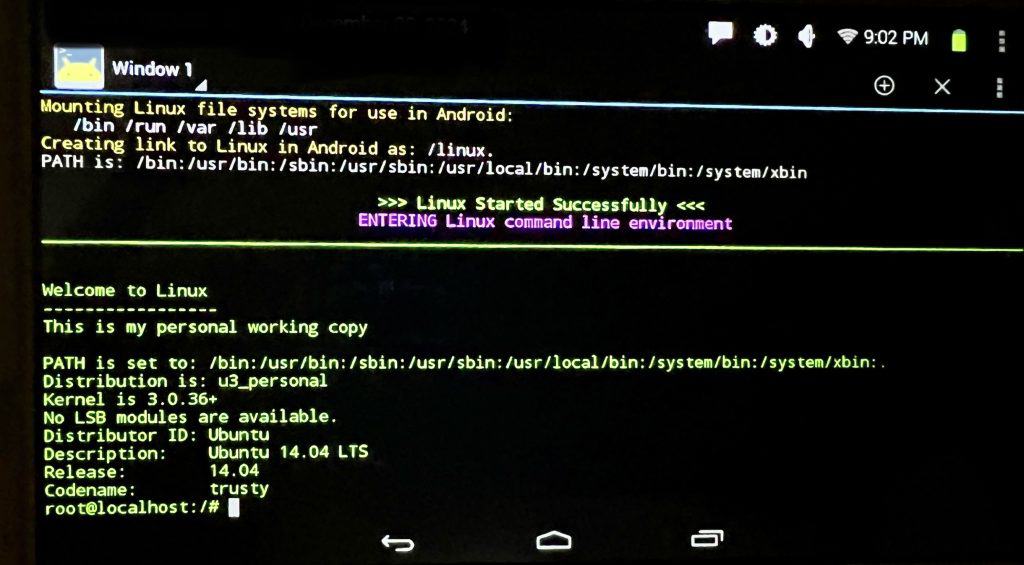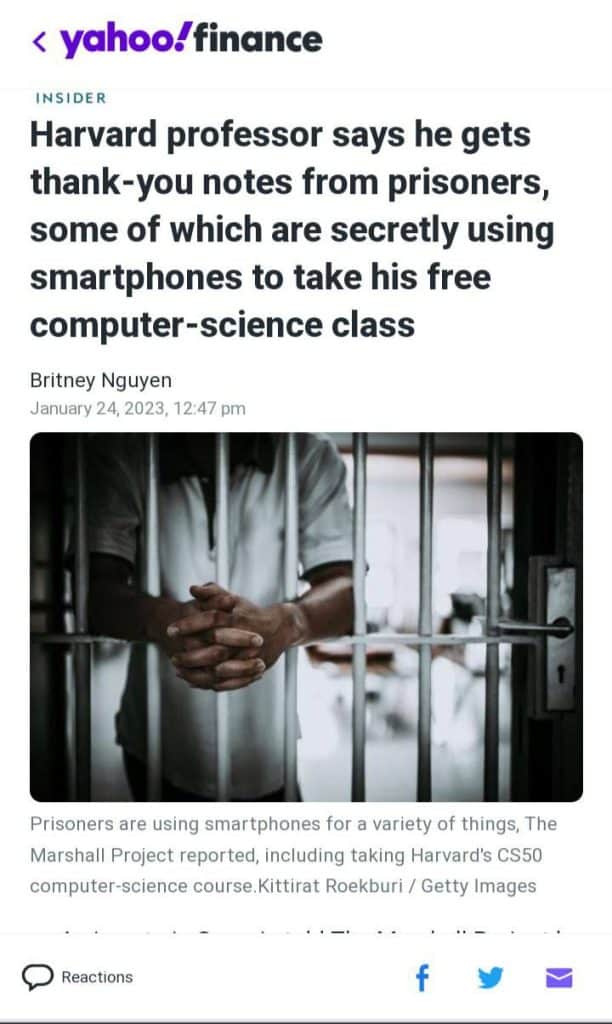When you think of rehabilitation in prisons, the first thought might be government-provided programs designed to help incarcerated individuals turn their lives around. But in Georgia and beyond, the reality is often far from this ideal. With systemic issues such as limited resources, inadequate access to education, and severe restrictions on technology, prisoners are left to fend for themselves. Yet, amidst these challenges, innovation thrives.

Prisoners are finding ways to educate and rehabilitate themselves, often using a combination of prison-issued tablets, contraband cell phones, and their own ingenuity to build skills and seek opportunities for a better future. Their efforts, though unofficial and sometimes risky, underscore a determination to reclaim their lives against the odds.
Education as Resistance
For many inmates, education is a form of resistance—a way to rise above the system’s shortcomings. One standout example is the use of Harvard’s free CS50: Introduction to Computer Science course materials. Despite severe restrictions on internet access, prisoners use contraband phones to download course content, forming learning groups within their facilities. According to The Marshall Project, one Georgia inmate leads a group chat of around 300 participants from multiple states, guiding them through the self-paced class .
This grassroots effort demonstrates the transformative power of education. Harvard Professor David Malan, who teaches the CS50 course, has received thank-you notes from incarcerated students over the years. He expressed admiration for their perseverance, especially given the challenges they face .
Contraband Cell Phones: Risks and Rewards
Contraband phones are central to these efforts but come with significant risks. Most prisons ban cell phones outright, and inmates caught with one can face severe consequences, including solitary confinement or additional charges . Still, the benefits often outweigh the risks for many. Phones allow prisoners to:
• Access online classes and tutorials.
• Learn new skills, from computer programming to entrepreneurship.
• Connect with family members through video calls, offering emotional support that traditional prison systems rarely facilitate .
One South Carolina inmate described cell phones as lifesavers, noting how they enable prisoners to call for help in emergencies when staff are unavailable—a grim but common reality in understaffed facilities .
Prison-Issued Tablets: A Step Forward, But Not Enough

In some facilities, state-issued tablets offer a safer alternative to contraband phones. These devices often include preloaded educational programs, eBooks, and limited communication capabilities. However, their functionality is typically restricted, leaving prisoners unable to fully access the wealth of knowledge available online. Moreover, these tablets are often monetized, requiring inmates to pay for basic features like email or additional content, further disadvantaging those without financial support from family .
A Self-Driven Path to Rehabilitation
Prisoners’ use of technology to educate themselves isn’t just about gaining skills—it’s about dignity and self-determination. These efforts highlight the systemic gaps in rehabilitation programs within U.S. prisons. Many inmates understand that the official channels are insufficient and take it upon themselves to prepare for life after incarceration.
Beyond education, inmates use phones to engage in activism, documenting inhumane conditions and advocating for prison reform. Photos of inadequate meals, overcrowded facilities, and violence have made their way to social media and court filings, exposing the harsh realities of life behind bars .
The Future of Rehabilitation
The ingenuity of prisoners underscores the urgent need for systemic reform. If incarcerated individuals can achieve so much with limited tools and significant risks, imagine what they could accomplish with official support. Expanding access to education, providing affordable and unrestricted technology, and ensuring humane conditions could transform prisons into true centers of rehabilitation.
As society debates the role of incarceration, the creativity and resilience of prisoners provide a blueprint for change. By supporting programs like Harvard’s free courses and advocating for broader access to technology, we can help those behind bars build better futures—for themselves, their families, and society as a whole.
This blog demonstrates how prisoners are not only surviving but striving for better lives, often in spite of the system rather than because of it. Their stories are a powerful reminder of the human spirit’s capacity to innovate and overcome.
Sources:
https://www.themarshallproject.org/2023/01/19/cell-phones-in-prisons-tiktok-education
https://www.yahoo.com/tech/harvard-professor-says-gets-thank-174737332.html
